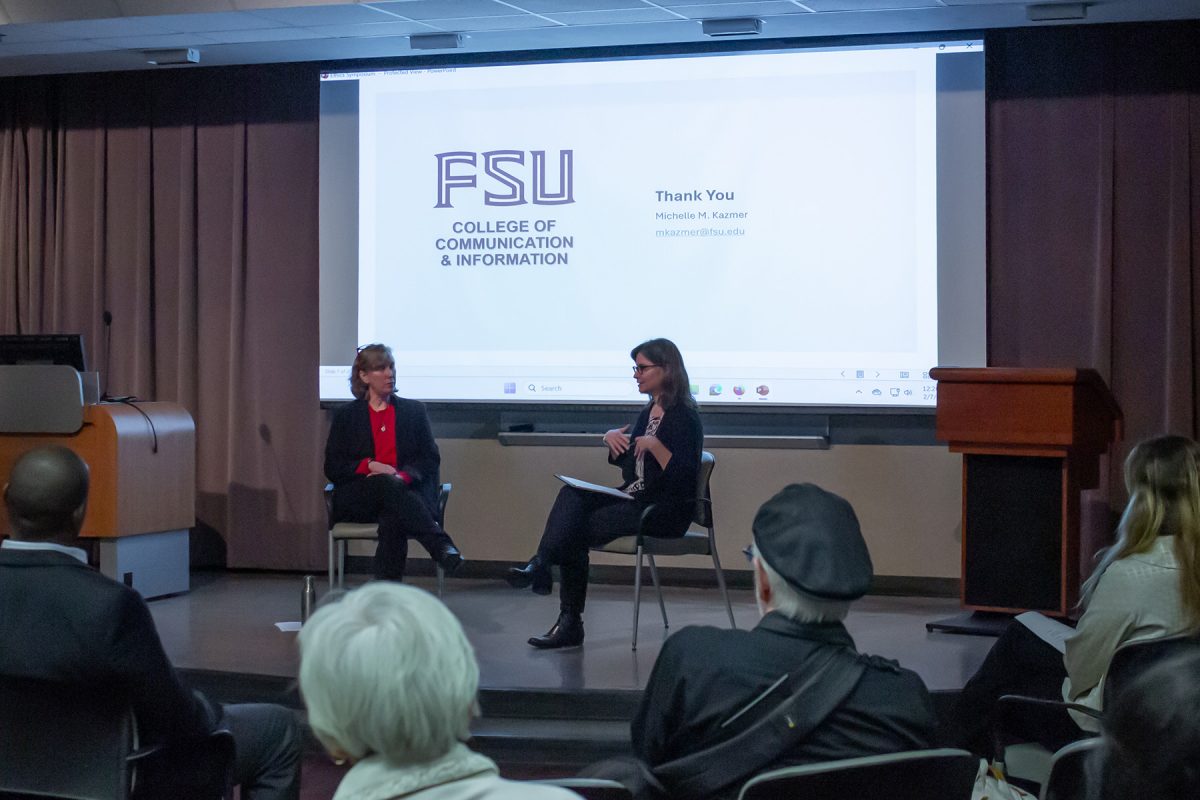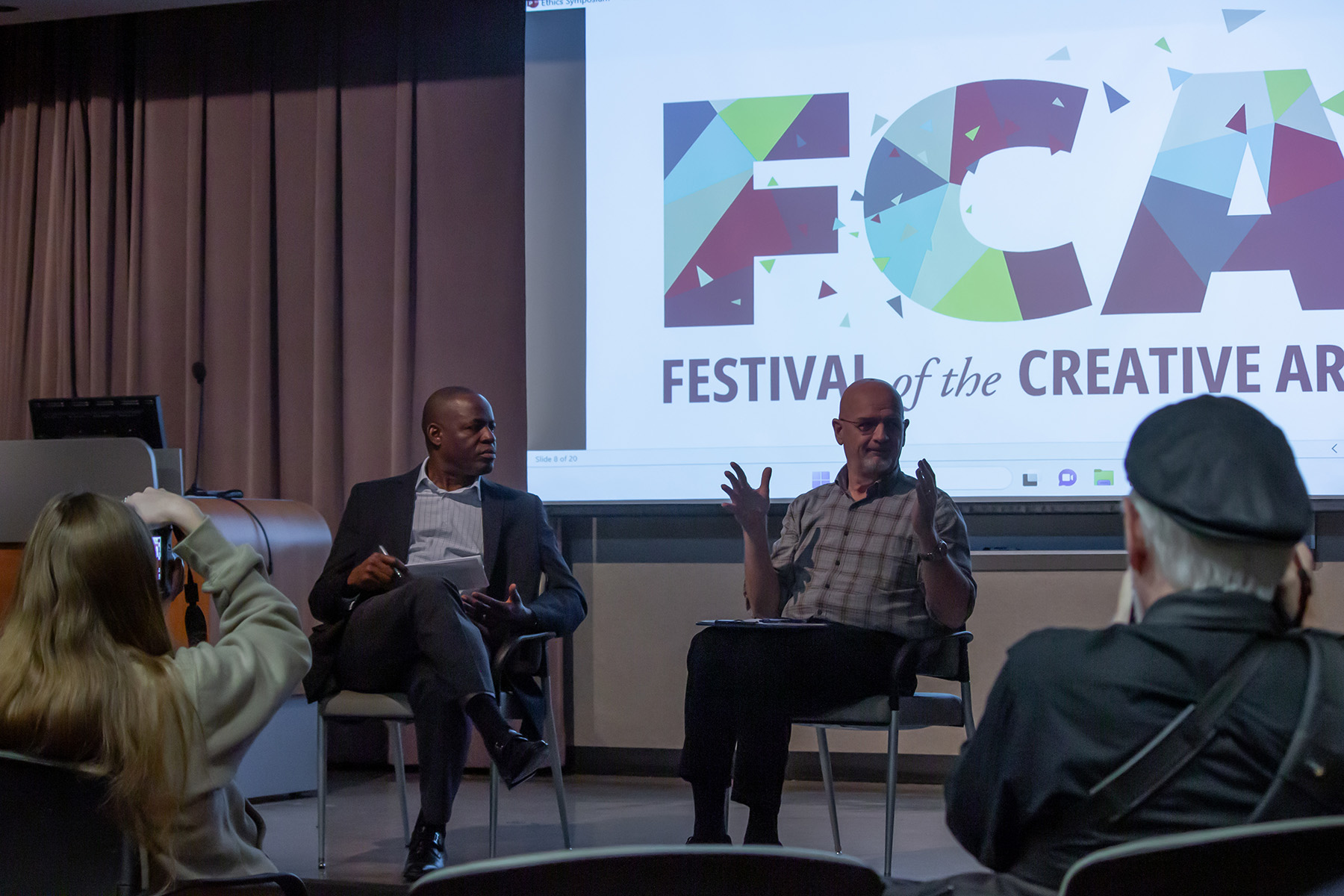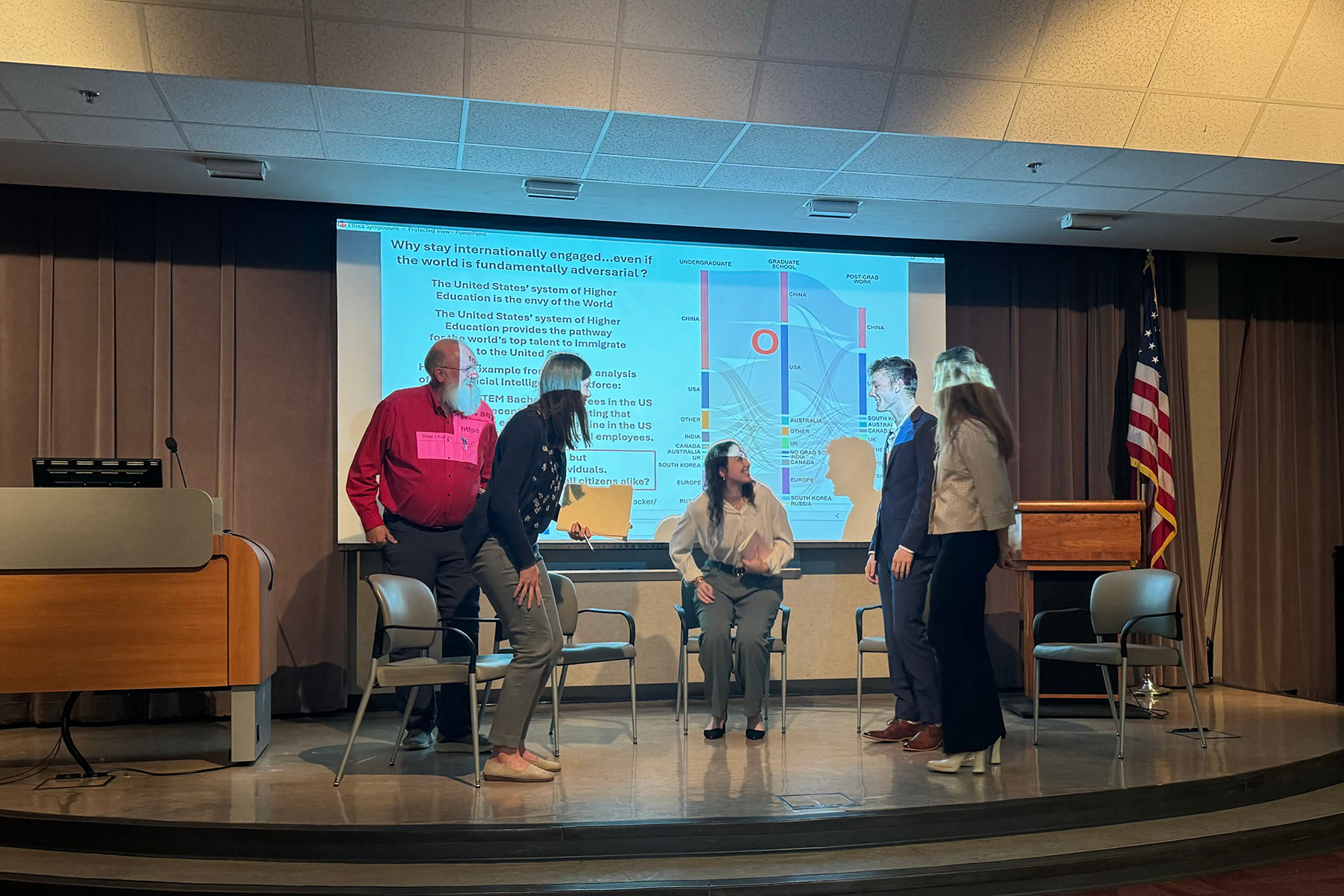
Three Florida State University faculty from across campus came together to discuss the wide-ranging topic of ethics in a Friday, Feb. 7 symposium at FSU’s Claude Pepper Center.
The symposium was part of the FSU Office of Research’s larger Festival of the Creative Arts, a campuswide collaborative event highlighting the diverse voice, talents and creativity of FSU faculty and students throughout January and February.
The discussion focused on three larger topics as they relate to ethics: Agatha Christie and ethical ambiguity, ethics and research in musicology and ethical challenges posed by national defense and international scientific research.
Michelle Kazmer, dean and professor at the College of Communication and Information, kicked the symposium off with her discussion of ethical ambiguity in the works of Agatha Christie. Christie is an English author best known for her detective novels, plays and short stories.
“Crime fiction has, for millennia, helped us grapple with what it means to be human: how do we collectively respond when people break our shared ethical obligations in the most egregious ways possible?” Kazmer said. “Agatha Christie explored many ethical issues with nuance and breadth across her half-century writing career, offering thoughtful explorations into thorny issues of ethics, obligation and justice.”

Throughout the discussion, Kazmer addressed the primary ethical themes that Christie grappled with in her works and how she used characters, setting, social norms and plot as an avenue for readers to explore those themes.
Curtis Mayes Orpheus Professor in the College of Music Frank Gunderson highlighted ethical considerations in ethnomusicology and musicology, underlining how these considerations are crucial for fostering responsible and respectful scholarship.
“Ethical music research is not a static set of guidelines to be checked off in a proposal; it is an evolving practice of accountability, dialogue and mutual respect,” Gunderson said. “It’s asking, ‘What do I owe the people who trust me with their stories?’”
Gunderson’s discussion highlighted what he argues should serve as guiding pillars in this process: informed consent, power and representation, ownership, collaboration and accountability. He advocates for continuous reflection and adaptation of ethical practices to address the evolving challenges of ethnomusicology and musicology.

Closing out the symposium was Gregory S. Boebinger, professor of physics and director emeritus of FSU’s National High Magnetic Field Laboratory. Boebinger explored the ethical challenges posed by national defense and international scientific research.
“Basic research, by its very nature, is collaborative and cooperative,” Boebinger said. “More applied research, particularly in areas involving national security, introduces additional ethical complexity. This is well illustrated in the film ‘Oppenheimer’, in which a number of ethical considerations are raised by the main characters as they consider their role in the Manhattan Project, the international collaboration that resulted in the first atomic bomb.”
Joined by three FSU honors students, Boebinger also discussed the ethical implications of AI as a modern and timely example of this ethical dilemma and posed questions about the fundamentally cooperative and collaborative research for the benefit of the masses.
Festival of the Creative Arts continues through Sunday, Feb. 23, bringing together departments from across campus to celebrate the innovation that results from combining various modes of expression and subjects together.
For more information and the full program of events, visit research.fsu.edu/fca.



